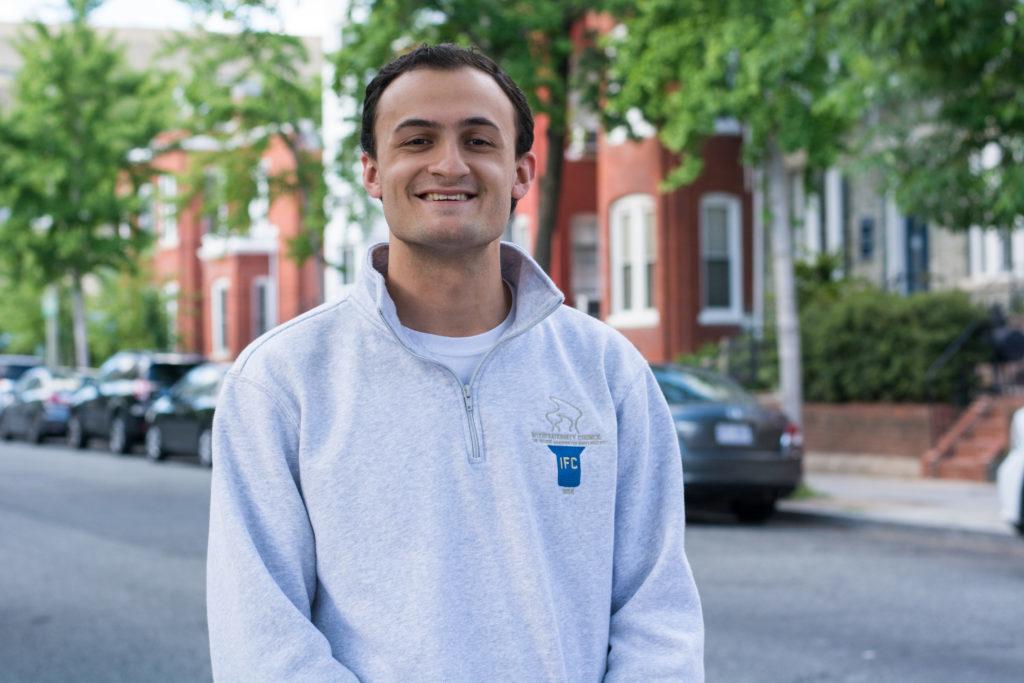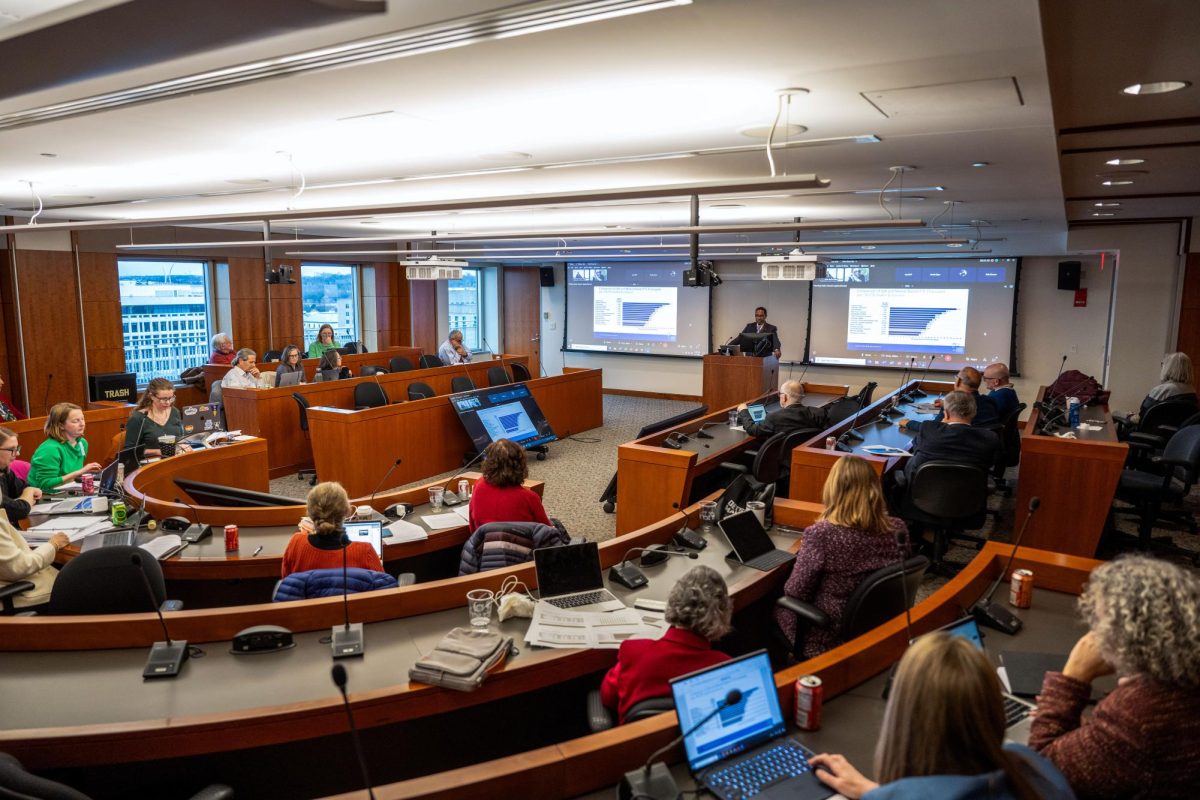Beginning next spring, social fraternities will face internal sanctions if they don’t formally educate their members about sexual assault.
Last month, the Interfraternity Council voted to amend its constitution to mandate that all fraternities host a Title IX education session within two weeks of new member initiation, the council’s president said. Greek leaders said the trainings will provide uniform education about sexual assault for every fraternity member and help chapters prevent and intervene in sexual abuse instances.
IFC President Harley Pease said because the fraternity rush process will be deferred to spring of next year, the education sessions must happen before April 1. If a fraternity fails to meet this deadline and doesn’t have 80 percent of its membership in attendance, the chapter will lose its “good standing” with the IFC, meaning its members cannot vote in official IFC decisions, hold office on the executive board or vote in hearings on the judicial board, Pease said.
“The point of passing the amendment and not just saying ‘hey guys I think it’d be a good idea to do it, just do it as a chapter,’ is so future IFC’s see the amendment and realize that it’s a thing and that chapters have to continue to do this,” he said.
Pease said the trainings are a way to give members an education about sexual assault as soon as they join the Greek community.
“That’s so important for freshmen to know what’s going on, because you come from so many different places at GW, and all across the country and all across the world, so it’s good to have some uniform knowledge of what sexual assault is,” he said.
In fall 2016, Students Against Sexual Assault added about 20 new peer educators to their organization.
Pease said the details of the education sessions have not been determined, but that the Title IX office will primarily decide what information is important to include in the trainings.
“I’m sure they have a plan for what the education looks like,” Pease said. “They’ll probably talk about safe sex, they’ll probably talk about bystander intervention, they’ll probably talk about how you can intervene, what’s appropriate, things like that.”
Student organizations can request workshops from the Title IX office on a variety of topics and can customize these workshops to fit what education the group wants to receive, according to the Title IX website. Groups frequently request trainings on trauma care, bystander intervention and the causes that drive sexual assault and relationship violence.
In fall 2016, Students Against Sexual Assault added about 20 new peer educators to their organization, primarily to increase training within the Greek community. But only three of the 14 IFC fraternities hosted the trainings with SASA, the group’s leaders said earlier this month.
The decision to amend the constitution came weeks before the Panhellenic Association released a call for action, creating a task force to combat sexual assault. Panhellenic leaders started the committee in response to an increase in reported sexual assaults on campus and alleged druggings at IFC social events this year.
Pease said the idea for the trainings emerged from conversations among Greek leaders at an annual retreat last fall. The Panhellenic Association, Multicultural Greek Council, the IFC and all the chapter presidents and Panhellenic delegates discussed goals of the community and the biggest challenges they face, he said.
“Of course, like always, sexual assault is an issue that’s not going away,” he said. “We all decided together that sexual assault is a problem, so we took action and we had support from everyone.”
IFC chapter presidents unanimously voted to mandate the trainings, Pease said.
“Having an amendment like this holds the leaders of each chapter accountable and enables the community to address sexual assault in a concrete way.”
Jimmy Tronolone, the president of Phi Sigma Kappa, said the chapter’s bylaws include mandatory sexual assault training, but the IFC amendment will increase accountability among all fraternities on campus.
“Having an amendment like this holds the leaders of each chapter accountable and enables the community to address sexual assault in a concrete way,” he said in an email.
In recent years, fraternities have been in the center of the national conversation about an epidemic of sexual assaults on college campuses. A report study published in 2007 found that fraternity brothers are three times more likely to commit rape than other men on college campuses.
In 2015, Sigma Chi fraternity hosted a sexual assault workshop to educate about 300 members of the Greek life community. Fraternity members received backlash from student leaders who claimed the speaker made insensitive comments and members of the audience made inappropriate remarks.
Other IFC organizations at campuses nationwide have worked to combat sexual assault. In 2014, the IFC of the University of North Carolina mandated that all 23 of its fraternities require each member to receive four hours of sexual assault training every two years.
Amanda Lindamood, the director of training and community engagement for DC Rape Crisis Center, said many universities are making changes to constitutions or bylaws to combat sexual assault. But she said the issue cannot only be solved with mandates or rules — there needs to be a culture change.
“That tends to be something that’s harder to measure and harder to change quickly,” she said.





